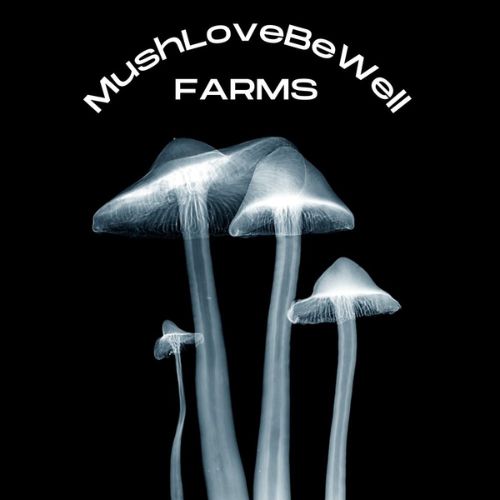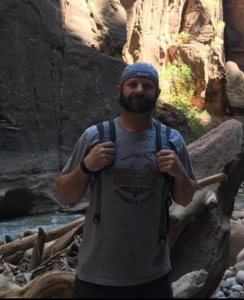In recent years, the world has witnessed a resurgence of interest in psychedelic substances, not as recreational drugs, but as potential tools for healing and understanding the human mind. At the forefront of this renaissance is Johns Hopkins University, which has established itself as a leader in the rigorous scientific exploration of psychedelics. Through groundbreaking studies and a commitment to ethical, evidence-based research, Johns Hopkins is transforming public perceptions and advancing the potential therapeutic uses of these substances.
A Brief History of Psychedelic Research
The study of psychedelics is not new. In the mid-20th century, substances like LSD (lysergic acid diethylamide) and psilocybin (the active compound in “magic mushrooms“) were heralded as potential breakthroughs for psychiatry. Early research suggested that these compounds could help treat conditions such as depression, anxiety, and addiction. However, political and cultural backlash during the 1960s led to the criminalization of psychedelics, effectively halting scientific exploration for decades.
The revival of psychedelic research began in the 1990s, with regulatory agencies gradually approving small-scale studies. By the early 2000s, institutions like Johns Hopkins had begun to reinvigorate this field, employing modern scientific methods to investigate the therapeutic potential of these substances in a controlled and ethical manner.
Establishing the Center for Psychedelic and Consciousness Research
In 2019, Johns Hopkins established the Center for Psychedelic and Consciousness Research, marking a significant milestone in the legitimization of psychedelic studies. Backed by $17 million in private funding, the center was designed to explore how psychedelics affect behavior, brain function, learning, and memory. It also investigates their potential to treat a range of mental health disorders, including depression, post-traumatic stress disorder (PTSD), and substance use disorders.
The center’s establishment reflects a broader shift in societal attitudes toward psychedelics, driven in part by mounting evidence of their therapeutic efficacy. At Johns Hopkins, research is conducted under the strictest ethical and scientific standards, ensuring that the findings are robust, replicable, and safe.
Key Studies and Findings
- Psilocybin for Depression and Anxiety
One of the most notable areas of research at Johns Hopkins involves the use of psilocybin to treat depression and anxiety, particularly in patients with terminal illnesses. A 2016 study found that a single high dose of psilocybin produced substantial and sustained decreases in depression and anxiety in cancer patients. Participants often described the experience as one of profound personal insight and spiritual significance, which contributed to their improved emotional well-being.
- Psilocybin-Assisted Smoking Cessation
In another groundbreaking study, Johns Hopkins researchers explored the potential of psilocybin to help individuals quit smoking. The results were remarkable: 80% of participants remained abstinent from smoking six months after the intervention. This success rate far exceeds that of conventional treatments, suggesting that psilocybin may help break the grip of nicotine addiction by providing users with transformative insights and a renewed sense of purpose.
- Addressing Major Depressive Disorder (MDD)
In 2020, Johns Hopkins published a study demonstrating that psilocybin-assisted therapy could produce rapid and significant reductions in symptoms of major depressive disorder. Unlike traditional antidepressants, which often take weeks to show effects, psilocybin’s benefits were evident after just one or two sessions. Moreover, the effects persisted for months, highlighting its potential as a long-lasting treatment option.
- Exploring the Nature of Consciousness
Beyond clinical applications, researchers at Johns Hopkins are also delving into the nature of consciousness itself. Psychedelics are known to induce altered states of awareness, offering a unique window into how the brain constructs reality. Studies using advanced neuroimaging techniques have revealed that psilocybin decreases activity in the brain’s default mode network (DMN), a region associated with self-referential thinking and rumination. This may explain why psychedelics can help disrupt harmful thought patterns and foster a sense of interconnectedness.
Ethical Considerations and Safety
The resurgence of psychedelic research has not been without challenges. Critics often raise concerns about the safety and ethical implications of administering powerful psychoactive substances to vulnerable populations. Johns Hopkins has addressed these concerns by implementing rigorous protocols to ensure participant safety.
For example, all studies are conducted in controlled environments with trained guides present during psychedelic sessions. Participants are carefully screened for medical and psychological conditions that might increase the risk of adverse effects. Additionally, the research emphasizes informed consent, ensuring that participants fully understand the nature of the study and potential risks involved.
The Future of Psychedelic Therapy
The work being done at Johns Hopkins is paving the way for a future in which psychedelics are integrated into mainstream medicine. However, significant hurdles remain. Regulatory approval is a complex and time-consuming process, and societal stigma still lingers. Nonetheless, the momentum is undeniable.
In 2023, the U.S. Food and Drug Administration (FDA) granted “breakthrough therapy” designation to psilocybin for treatment-resistant depression, expediting the path toward approval. Similar progress is being made with MDMA (commonly known as “ecstasy”) for PTSD, further validating the potential of psychedelics as therapeutic tools.
Public Perception and the Role of Education
Changing public attitudes toward psychedelics is a critical component of advancing this field. The research at Johns Hopkins has been instrumental in reshaping the narrative, emphasizing that these substances are not “drugs of abuse” but rather powerful tools that, when used responsibly, can promote healing and self-discovery.
Educational initiatives, such as public lectures, documentaries, and collaborations with policymakers, are helping to disseminate accurate information and dispel myths. By fostering an open and informed dialogue, Johns Hopkins is helping to build a foundation of trust and understanding that will support the broader acceptance of psychedelics in society.
Challenges and Ethical Questions
Despite the promising results, important ethical questions remain. How can access to psychedelic therapies be ensured for those who need them most, without succumbing to the pitfalls of commercialization? How can researchers ensure that indigenous knowledge and practices surrounding psychedelics are respected and not exploited? Addressing these questions will require ongoing collaboration between scientists, ethicists, policymakers, and indigenous communities.
Conclusion
The psychedelic research being conducted at Johns Hopkins University represents a paradigm shift in our understanding of mental health and consciousness. By combining cutting-edge science with a deep respect for the complexity of the human mind, researchers at Johns Hopkins are unlocking new possibilities for healing and self-discovery. While challenges remain, the potential benefits of this work are too significant to ignore. As the field continues to evolve, it is likely that psychedelics will become an integral part of the medical and psychological toolkit, offering hope to millions of people worldwide.
Through its unwavering commitment to rigorous research and ethical integrity, Johns Hopkins is not just leading the psychedelic renaissance—it is shaping the future of mental health care.
The post Unlocking the Mysteries of the Mind: Johns Hopkins and Psychedelic Research first appeared on Mycology Now.
The post Unlocking the Mysteries of the Mind: Johns Hopkins and Psychedelic Research appeared first on Mycology Now.




